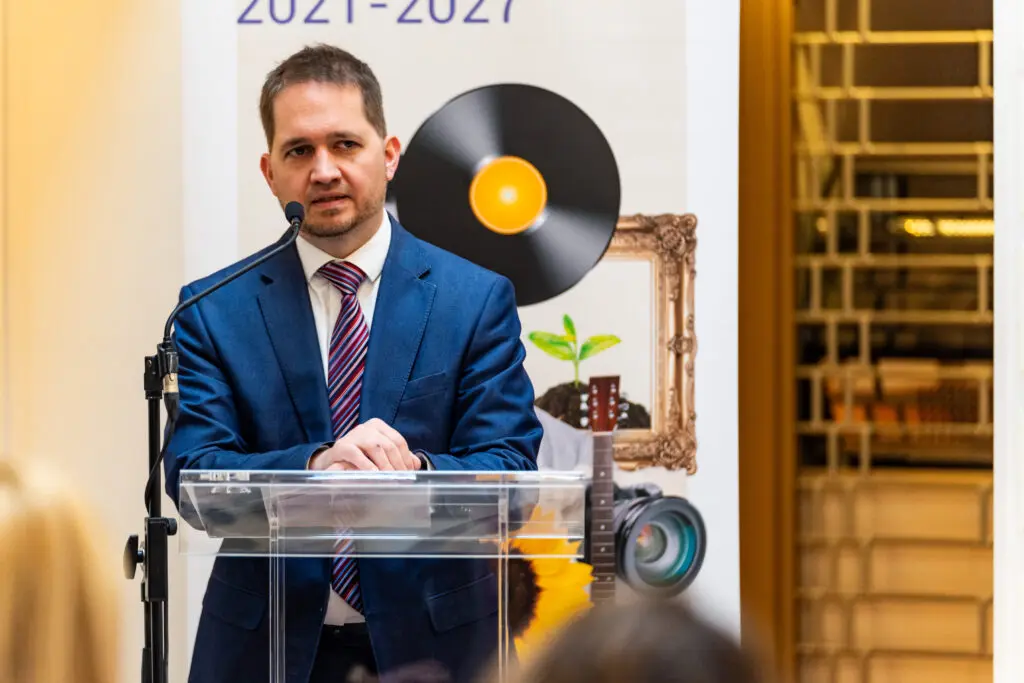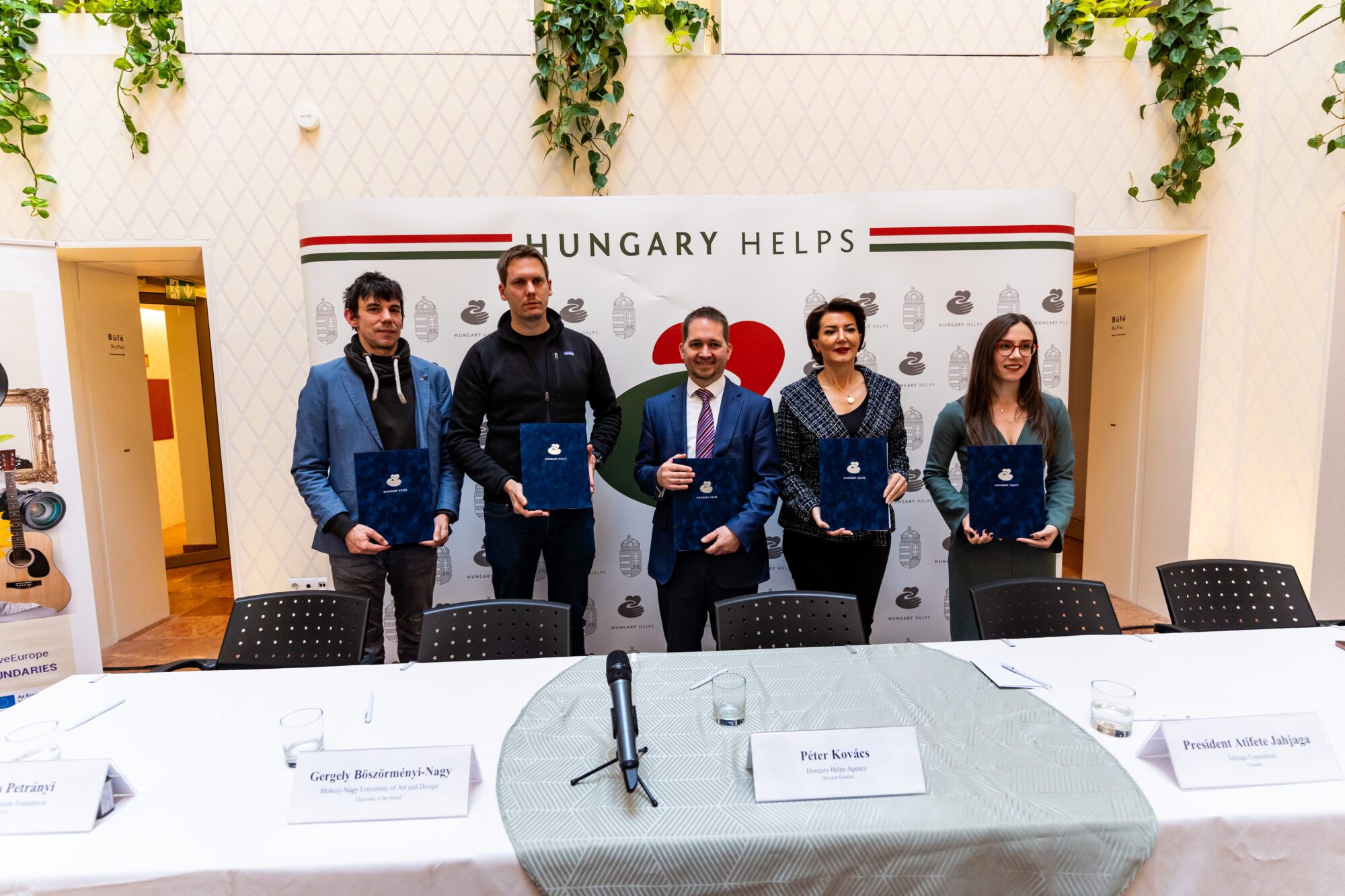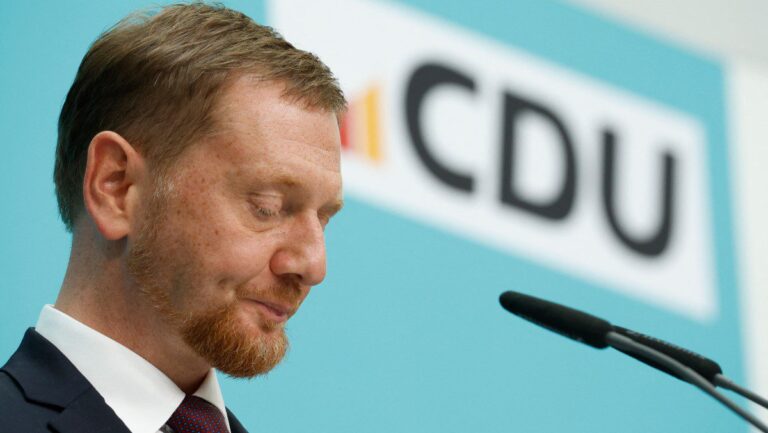A Hungarian-Kosovar-Albanian consortium, led by the Hungary Helps Agency, will launch its new initiative CREATResili (Create Resilience) on January 1, 2024. The project aims to support women living in Kosovo who have experienced abusive relationships by providing opportunities to create and sell products that tell their stories.
The main goal of the 22-month-long project, co-funded by the Creative Europe Programme, is to create a program where creativity promotes the resilience of vulnerable communities and increases social awareness. By using the tools of ‘social design’ (a philosophy of design which prioritizes social issues), CREATResili primarily supports women living in Kosovo who have experienced abusive relationships.
Often, many of these women do not have strong social networks and face challenges as they try to rebuild their lives. This can be an uphill battle due to the traumas they have experienced, as well as a lack of access to livelihood opportunities. In order to address these complex issues, the CREATResili consortium members will be organizing workshops where professionals will assist and mentor women who have experienced abuse to make and sell creative, self-expressive design products.
Not only will the women participating in this project be able to earn an income—and thus have the means to leave abusive relationships—but through the creation and presentation of these products, they can tell and process their personal stories and give visibility to the problem of gender-based violence to the international public. In a wider geographical sense, the project could have a significant positive impact on women’s empowerment in the Western Balkans region.
CREATResili builds on cross-sectoral collaboration as it brings together a governmental humanitarian and development agency (Hungary Helps Agency, Hungary), an artistic hub (Pro Progressione, Hungary), an NGO working with women who have experienced abuse (Jahjaga Foundation, Kosovo), and an e-commerce company (Gjirafa, Albania). Furthermore, the Moholy-Nagy University of Art and Design (MOME) joins the consortium as an associated partner, with its professional network and comprehensive knowledge in the field of social design.
We asked Péter Kovács, director general of Hungary Helps about the CREATResili project’s importance and its possible outcomes.

What outcomes does the programme wish to achieve and how will those be measured?
The main objective of the 22-month project is to create a programme where the creativity helps to strengthen the resilience of vulnerable communities. To address such a challenging topic, the CREATResili consortium members are keen to build an internationally successful model by setting up workshops, where trained professionals assist women who have endured abuse, by creating and selling creative, self-expressive design items. Our goal is to provide new approaches to creative and artistic professionals through further trainings and fieldwork, supporting them to use social design more effectively to help vulnerable communities. In the second part of the project, we will apply this methodology in a real, local context. The targeted women will be able to participate in the process and convey their own narratives through the creation and presentation of these products, which also raises awareness of the issue of gender-based violence among people internationally. The project has the potential to significantly improve women’s empowerment throughout the Western Balkans region on a broader geographical scale. We will share tools and practices for proper engagement with marginalized groups and how to successfully involve them in the creative process.
How will the consortium ensure the sustainability of the project?
Establishing a program relying on creativity to foster self-sustainability and social sensitivity is expected to have two effects: people from marginalized and vulnerable backgrounds can regain their dignity and become more resilient as a result; also, creative professionals are able to help them in shaping their personal, frequently hidden stories into a powerful voice that can be heard internationally.
Through the network of Hungary Helps Agency, the project can facilitate the creation of the required synergies, reach legislators, and assist the project’s sustainability and visibility at the EU level. Sustainability, built on three pillars—social, environmental, and economic—is one of the project’s primary goals. Our goal is to achieve a balance between environmental preservation, economic progress, and social well-being. Since we also prioritize the needs and welfare of the target marginalized communities and individuals, our initiative has a strong social component. To ensure that, Hungary Helps Agency and the Jahjaga Foundation possess a strong foundation and solid knowledge. From an economic perspective, Gjirafa guarantees the project’s financial sustainability as a certified e-commerce specialist. Furthermore, the Moholy-Nagy University of Art and Design (MOME) joins the consortium as an associated partner, with its professional network and comprehensive knowledge in the field of social design.
How will the products created by the participants marketed and sold?
A comprehensive plan for positioning and promoting the products in the regional and European markets will be developed by the consortium through the establishment of a marketing strategy. The team is going to open a virtual shop exclusively for the participating women. In order to create buzz and anticipation prior to the actual debut, the partnership also intends to organize a teaser campaign. Gjirafa will assist the consortium in developing and establishing an online store to sell the products in question. There are many kinds of planned advertising efforts and promotions that will include email marketing, social media, and traditional media. Following the sale process, metrics including marketing reach, conversion rates, and sales will be analysed to track the results and evaluate the marketing and sales efforts.





